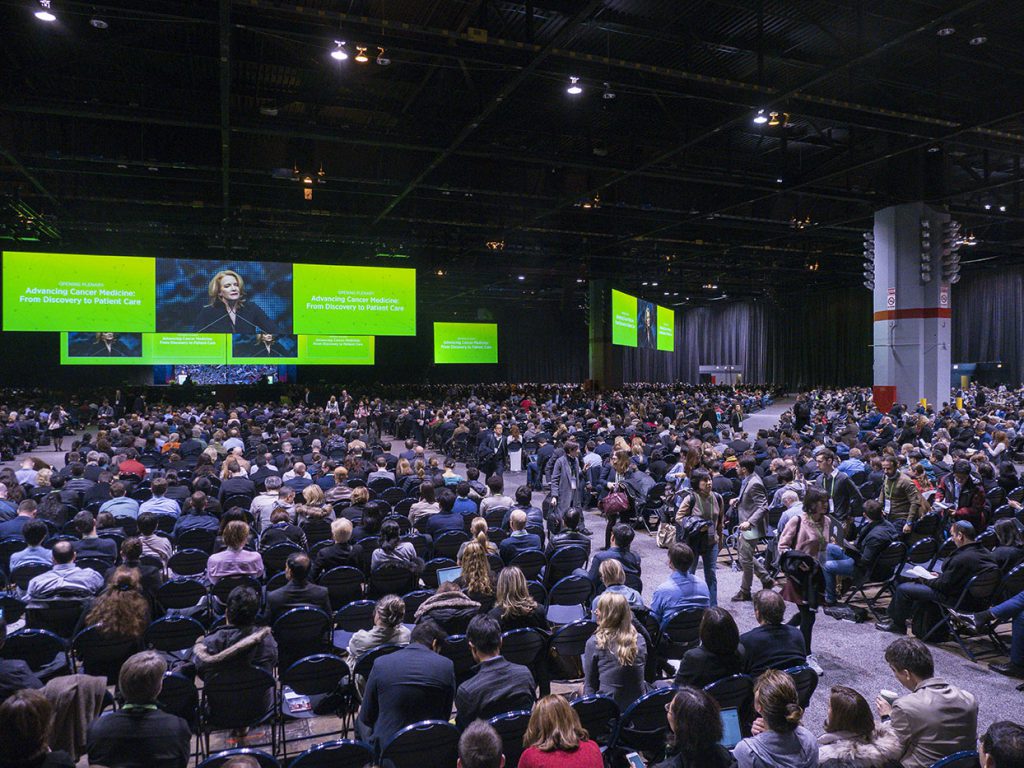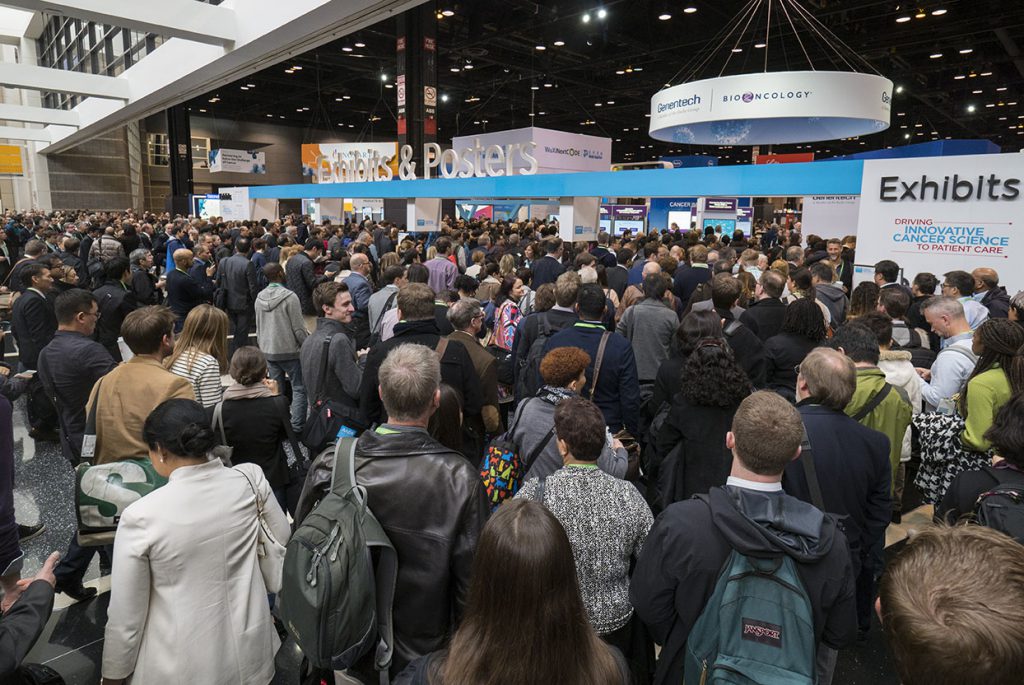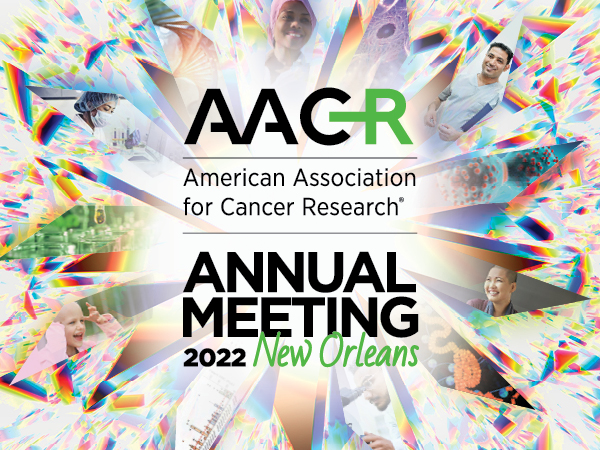Highlights from the AACR Annual Meeting 2018
This was another spectacular year for the AACR Annual Meeting with its record-breaking attendance of more than 22,500. From April 14 to April 18, McCormick Place in Chicago was packed with members of the cancer community engaged in intense and interesting scientific discussions, brainstorming, and networking, with the ultimate goal of accelerating the pace of progress for cancer patients.
The meeting culminated in a session titled “Vision for the Future,” during which key opinion leaders provided an overview of the exciting presentations from the Annual Meeting and their insightful thoughts about cancer research opportunities in the future. The following summary about the latest discoveries and cutting-edge research is timely because May is National Cancer Research Month, a month dedicated to increasing awareness of the importance of cancer research and the contributions of researchers, physician-scientists, survivors, and patient advocates across the United States to advance toward conquering cancer and saving more lives. 
Cancer Prevention and Survivorship
Avrum Spira, MD, MSc, professor of medicine, pathology, and bioinformatics at Boston University School of Medicine, said, “There is a need for international effort funded by governments, by foundations, and by the industry, to create a pre-cancer atlas similar to the TCGA [The Cancer Genome Atlas], but in premalignancy.” He added, “This is going to transform our understanding of the root cause of cancer, which will ultimately impact our ability to prevent, intercept, and detect the disease early.”
Spira reviewed studies presented at the meeting that attempted to compare the genomic landscape of precancers that progressed to cancer with those that didn’t progress. These studies showed that the mutational signatures, including in genes involved with T-cell immunity, were different between the two scenarios. Spira also reviewed data presented from clinical trials of immunoprevention in patients with colonic polyps and in those with HER2-positive ductal carcinoma in situ. Immunoprevention is going to lead the future of chemoprevention, Spira noted.
Spira emphasized the need to address the unique challenges experienced by cancer survivors, including late side effects, relapse, emotional impact, and immediate and long-term financial toxicity.
Watch Spira’s presentation here.
Basic Cancer Science and the Impact of Technology
Annual Meeting program committee chair Elaine Mardis, PhD, summarized the progress made in basic science research as a result of new technologies and computational analysis approaches, including artificial intelligence. She discussed studies presented at the meeting that utilize large gene panels to guide treatment, and studies that focused on single-cell sequencing technologies to help understand the biology of the disease, mechanisms of resistance, and tumor metastasis.
Data presented at the meeting show that these latest approaches have yielded new knowledge about cancer and are helping us in modeling cancer as a system, she noted. “This further enables our ability to predict response to therapeutic interventions,” Mardis said. “This in turn will aid our advances in applying precision medicine for better outcomes in cancer patients.”
Mardis, who is AACR President-Elect 2018-2019, concluded, “I’m looking forward, in the upcoming year, to additional advances that combine these approaches in [analyzing] clinical trial samples where we understand the response and outcome.” Analyzing data obtained during longitudinal studies from primary and metastatic samples would not only tell us about the mechanisms of therapeutic resistance, but also inform us about liquid biopsy-based monitoring approaches, she said.
Watch Mardis’ presentation here.

Plenary sessions drew huge crowds throughout the Annual Meeting 2018. Here, AACR President-Elect Elaine Mardis, PhD, who served as program committee chair for this year’s meeting, addressed attendees. Photo by © AACR/Todd Buchanan 2018
Clinical Trials and Therapeutics
Michael A. Caligiuri, MD, Past President of the AACR, provided highlights of data from the approximately 170 clinical trials presented at the meeting. “Thirty-five years ago when I was in med [medical] school there were four drugs for all cancers,” began Caligiuri, who went on to showcase the growing number of new chemotherapeutics, immunotherapeutics, and targeted therapeutics in recent years.
Caligiuri summarized the exciting, practice-changing data from immunotherapy clinical trials for non-small cell lung cancer, including KEYNOTE-189, Checkmate -227; data from clinical trials of targeted therapeutics, including the ARROW trial of BLU-667 for RET-altered cancers, data from the PALOMA-3 trial of palbociclib for HER2-negative breast cancer with the CCNE1 biomarker protein, and data from several early-phase clinical trials.
We need new biomarkers of immunotherapy response and a better understanding of the mechanisms of resistance, and novel endpoints that focus on characteristics of survival, Caligiuri emphasized. He invited the audience to think critically about “where we need to go, what kind of clinical trials we need to develop,” and how to move newer therapeutics to earlier lines of treatment in a safe and effective way.
Watch Caligiuri’s presentation here.
Vision for the Future
Caligiuri invited the new AACR President Elizabeth M. Jaffee, MD, to present her vision for the upcoming year. Despite the progress we have made, global cancer death rates continue to remain a challenge, Jaffee said. “The global death rates will continue to rise unless new and more effective approaches to cancer prevention, early detection, and treatment are developed and effectively implemented,” she noted.
“Fortunately with all of these great data [presented at the Annual Meeting], we are at an unprecedented time in history, when new treatments and new technologies are rapidly reshaping how we view patient care,” Jaffee said. She discussed the major areas of emphasis for her tenure, including convergence science, implementation and behavioral sciences, and survivorship research.
Jaffee stressed that we need to enhance the cancer research workforce. “We want to provide a platform to establish a greater voice for female and minority cancer researchers,” she noted. “We need to continue to expand our collaborations with domestic and international groups because only together we will really beat cancer.”
Watch Jaffee’s presentation here.
Hungry for more science from the Annual Meeting?
Here are some blog posts that cover specific topics from the meeting:
AACR Previews Research from Annual Meeting 2018
Improving the Effectiveness of CAR T-cell Immunotherapy
Highlighting Pediatric Preclinical Drug Testing at the Annual Meeting 2018
Opening Plenary Session on Liquid Biopsy, Immunotherapy, and More
A Round-up of Practice-changing Lung Cancer Immunotherapy Clinical Trials
Novel Immunotherapy Combinations to Combat Resistance to Checkpoint Inhibition
Off-the-shelf CAR T-cell Immunotherapy – Are we There Yet?
Using Precision Medicine to Target RET-altered Cancers
In the News: Annual Meeting 2018 Garners National Media Headlines
Here is the coverage of the meeting by Cancer Today magazine:
Pembrolizumab Shows Further Promise for Melanoma
Non–Small Cell Lung Cancer Takes Center Stage








